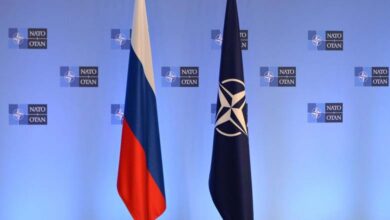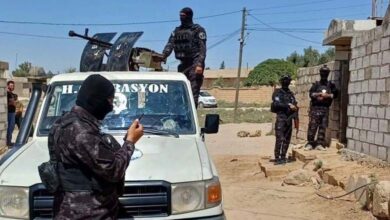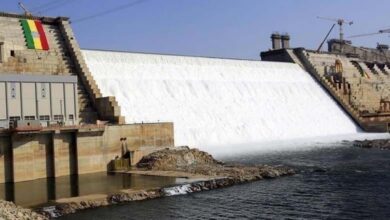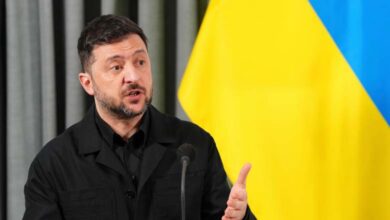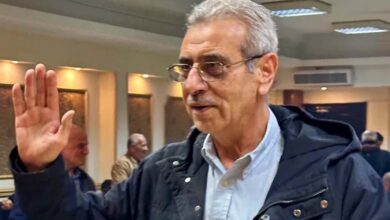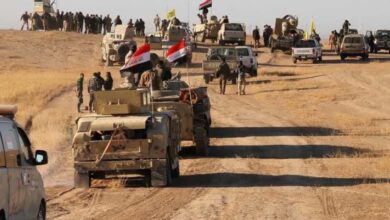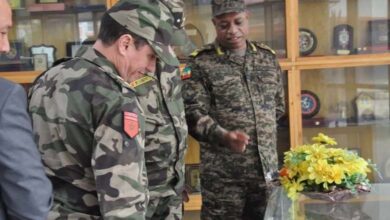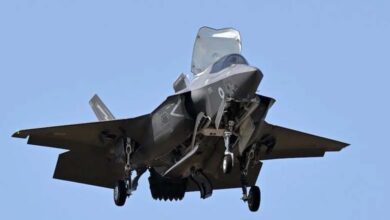Towards Implementing a Gaza Ceasefire: UAE Diplomatic Movement Post-UN Resolution

UAE Diplomatic Efforts for Implementing a “UN Ceasefire” in Gaza Succeed as Arabs Secure a UN General Assembly Resolution on the Matter.
The UAE intends to leverage the UN resolution, which calls for an immediate humanitarian ceasefire in Gaza, to create momentum within the United Nations Security Council for the implementation of the UN decision. This is especially significant as the UAE is the only Arab nation serving on the council for the years 2022-2023.
This diplomatic initiative is an extension of the UAE’s historical support for the Palestinian cause through the United Nations and its affiliated organizations. This has been a consistent aspect of the UAE‘s foreign policy since its establishment in 1971.
UN Resolution
The UN General Assembly approved an Arab draft resolution for an immediate humanitarian ceasefire with a majority of 121 votes on Friday.
This decision was reached during the tenth extraordinary emergency session of the General Assembly titled “Illegal Israeli Actions in Occupied East Jerusalem and the Rest of the Occupied Palestinian Territory.”
A total of 120 countries, including the UAE, voted in favor of the draft, while 14 countries opposed it, and 45 countries, including Iraq, abstained from voting due to a “technical error.”
With Iraq’s announcement of its participation in the final vote in favor, the number of countries that approved the draft resolution reached 121, with 44 abstentions.
Resolutions in the General Assembly are adopted by a two-thirds majority.
The text calls for “an immediate, durable, and continuous humanitarian ceasefire leading to the cessation of hostilities” and focuses on the humanitarian situation in Gaza.
It particularly calls for the immediate provision of water, food, fuel, and electricity “forthwith” and in “sufficient quantities,” as well as unrestricted access to humanitarian assistance.
The resolution urges all parties to immediately and fully comply with their obligations under international law, enabling and facilitating humanitarian access to essential supplies and services for all civilians in need in the Gaza Strip.
The resolution is titled “Protection of Civilians and Adherence to International Legal and Humanitarian Obligations” and strongly rejects “any attempts at forced displacement of Palestinian civilian populations.”
It also calls for the rescission of an Israeli directive regarding the evacuation of all areas north of the Gaza Valley and their relocation to the southern part of the Gaza Strip.
Furthermore, it calls for the “immediate and unconditional” release of all civilians detained unlawfully and demands their safety and humane treatment in accordance with international law.
The resolution emphasizes the need to establish a mechanism promptly to ensure the protection of Palestinian civilian populations and another mechanism for humanitarian notification to ensure the protection of UN facilities and all humanitarian installations, as well as unobstructed humanitarian aid convoys.
The resolution condemns all acts of violence targeting Palestinian and Israeli civilians.
In the resolution, the General Assembly expresses deep concern about the catastrophic humanitarian situation in the Gaza Strip and its immense repercussions on civilian populations, the majority of whom are children.
UAE Initiative
While the UN General Assembly resolution is not binding, the Arab group at the United Nations, during a press conference following the resolution vote, revealed its ongoing efforts to implement it.
Lana Nusseibeh, the Permanent Representative of the UAE to the United Nations, who participated in the press conference, stated that the UAE would lead efforts within the United Nations Security Council, supported by this UN resolution, to break the deadlock surrounding the council’s decisions regarding this crisis.
She emphasized that this resolution carries moral weight and ethical authority, and the UAE will go to the United Nations Security Council with this moral authority and work on proposals to break the deadlock in the council’s decisions concerning this crisis.
The vote in the General Assembly followed four unsuccessful attempts by the Security Council to reach a decision in the past two weeks.
The UAE Ambassador praised the collective Arab effort that led to the adoption of this resolution and stated, “The vote of 120 countries to adopt this resolution is a clear rejection of the current situation in Gaza.”
She emphasized the need to deliver humanitarian aid, along with a ceasefire or a humanitarian truce that allows for the provision of medical assistance to the injured and wounded.
In the United Nations Security Council
Since the renewed escalation in Gaza on October 7th of this year, the United Arab Emirates has been leading diplomatic efforts within the corridors of the International Security Council, seeking to end the war, protect civilians, and find a path to peace.
No session in the United Nations Security Council on the Palestinian issue and the situation in Gaza passed without the United Arab Emirates delivering strong supportive messages, in addition to their efforts to balance between various parties and work to support peace efforts and de-escalation.
Since the outbreak of the war, the United Nations Security Council has held 5 sessions on the Palestinian issue and the situation in Gaza: a closed session on October 8th, and 3 sessions to vote on draft resolutions on the 16th, 18th, and 25th of the same month, as well as an open discussion held last Tuesday.
During these sessions, votes were cast on 4 draft resolutions, two of which were submitted by Russia on the 16th and 25th of October, a third was presented by Brazil on the 18th of the same month, and a fourth was presented by the United States last Wednesday.
The United Arab Emirates supported the draft resolutions of Russia and Brazil, considering that all three resolutions call for a humanitarian truce and allowing the entry of humanitarian aid into the Gaza Strip, while opposing the American draft resolution that does not call for a ceasefire.
Despite the Security Council’s failure to reach consensus on these draft resolutions, which the United States opposed, the United Arab Emirates recorded a strong position during the sessions, supporting peace, humanity, and the Palestinian cause.
They also sent several messages to the world expressing their vision for resolving the crisis and outlining a roadmap for sustainable peace by addressing the issue at its root through a political solution that leads to the establishment of two states living side by side in harmony and peace.
Throughout these sessions, the United Arab Emirates presented urgent demands related to the current crisis, as well as a roadmap for achieving sustainable peace, including an immediate and sustainable ceasefire in Gaza, allowing the safe and prompt delivery of humanitarian aid to the Gaza Strip without obstacles.
They also called for the protection of all civilians and the respect for humanitarian law (ceasefire and the release of all hostages), in addition to rejecting the forced displacement of Palestinians from their lands, in accordance with international humanitarian law.
Furthermore, the United Arab Emirates presented a roadmap for achieving sustainable peace, leading to a solution of two states living together in peace and harmony. They called for the cessation of all illegal practices, measures to build trust between the parties, and the resumption of serious and credible negotiation processes.
They also called for the preservation of the legal and historical status of Jerusalem and its holy sites, as well as respecting the role of the Hashemite Kingdom of Jordan in safeguarding the holy sites and endowments in the city, in addition to promoting dialogue, peaceful coexistence, and cooperation as a path to achieving stability in the region.
They worked to achieve these objectives by enhancing cooperation with regional and international partners to achieve stability in the Middle East and promote opportunities for peace.
A historical commitment
Support for the Palestinian cause has been a constant in the foreign policy of the United Arab Emirates since its establishment. Prior to the recent escalation in the Gaza Strip, virtually no political speech by the UAE in any international or regional forum, annual speeches, bilateral meetings, or joint discussions would be complete without emphasizing the centrality of the Palestinian issue for the UAE, the Arab world, and the Islamic world.
These constants invariably include warnings about the danger of failing to reach a just solution to the Palestinian issue and the UAE’s commitment to supporting Arab peace initiatives and the two-state solution as the basis for peace.
The UAE has succeeded on multiple occasions through its continuous efforts in the United Nations Security Council in advancing the Palestinian cause, with one of its most prominent victories occurring on February 21st of last year when it secured a vital triumph for the Palestinian issue from within the Security Council. This was achieved by adopting a presidential statement opposing unilateral actions that hinder the peace process in the Palestinian territories and reaffirming its commitment to a two-state solution.
As a elected member of the United Nations Security Council, the United Arab Emirates facilitated this important resolution with the support of all council members.
These efforts culminated in the issuance of the first Security Council resolution on the settlement issue in more than six years, and a strong Emirati call emphasized the importance of the international community’s commitment to a vision of an independent Palestine living side by side with Israel in peace, as well as rejecting any Israeli actions that impede the two-state solution.
The UAE had previously warned from within the Security Council that Israeli violence towards the Palestinians “threatens to lead to more serious clashes and a state of chaos” and emphasized “a just, comprehensive, and lasting peace.”


